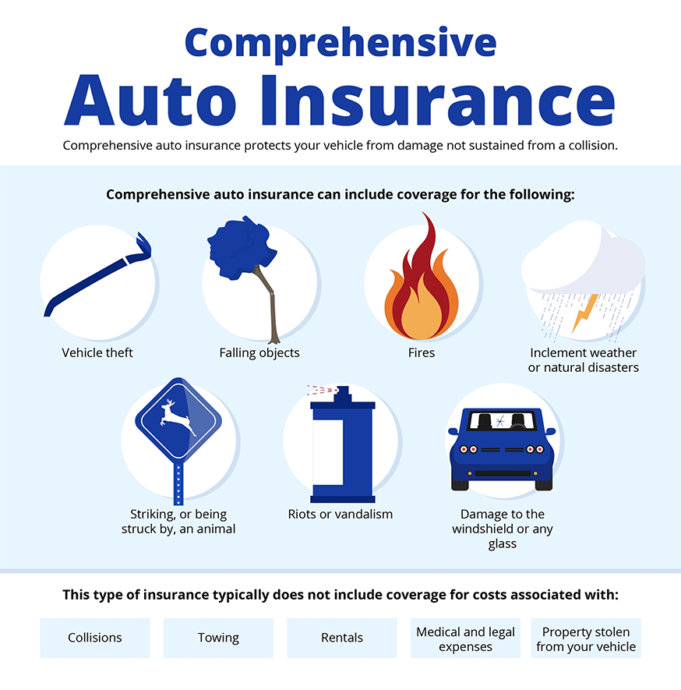When it comes to protecting your vehicle, a comprehensive car insurance policy is often the best way to go. But what does this type of policy actually cover, and how can it benefit you? In this article, we’ll break down the ins and outs of comprehensive car insurance, so you can make an informed decision about your vehicle’s protection.

What is Comprehensive Car Insurance?
Comprehensive car insurance is a type of policy that covers damages to your vehicle that are not related to a collision. This means that if your car is damaged in a non-collision event, such as a fire, theft, vandalism, or natural disaster, your comprehensive policy will likely cover the costs.
What Does a Comprehensive Policy Cover?
A comprehensive policy typically covers the following types of damages:
- Theft: If your car is stolen, a comprehensive policy will help cover the costs of replacing or recovering your vehicle.
- Vandalism: If your car is vandalized, a comprehensive policy will help cover the costs of repairing or replacing the damaged parts.
- Fire: If your car is damaged in a fire, a comprehensive policy will help cover the costs of repairing or replacing the damaged parts.
- Natural Disasters: If your car is damaged in a natural disaster, such as a hurricane or earthquake, a comprehensive policy will help cover the costs of repairing or replacing the damaged parts.
- Animal Collisions: If your car is damaged in an accident with an animal, a comprehensive policy will help cover the costs of repairing or replacing the damaged parts.
- Glass Damages: If your car’s windshield or windows are damaged, a comprehensive policy will help cover the costs of repairing or replacing the damaged glass.
Other Benefits of Comprehensive Car Insurance
In addition to covering damages that are not related to a collision, a comprehensive policy may also offer other benefits, such as:
- Rent Car Coverage: If your car is in the shop for repairs, a comprehensive policy may help cover the costs of renting a vehicle.
- Roadside Assistance: If you experience a breakdown or other issue with your vehicle, a comprehensive policy may offer roadside assistance to help get you back on the road.
- Emergency Travel Expenses: If you are involved in an accident or experience a vehicle breakdown while traveling, a comprehensive policy may help cover the costs of emergency travel expenses, such as hotel stays and food.
How to Choose a Comprehensive Policy
When choosing a comprehensive car insurance policy, there are several factors to consider. Here are a few tips to keep in mind:
- Check the coverage limits: Make sure the policy’s coverage limits are sufficient to cover the value of your vehicle.
- Look for deductibles: Check the policy’s deductible, which is the amount you must pay out-of-pocket before the insurance kicks in.
- Research insurance companies: Look for insurance companies that have a good reputation and offer a comprehensive policy that meets your needs.
Conclusion
A comprehensive car insurance policy can provide peace of mind and protection for your vehicle. By understanding what a comprehensive policy covers and what to expect from a policy, you can make an informed decision about your vehicle’s protection. Remember to research insurance companies and policies carefully, and don’t hesitate to ask questions if you need clarification. With the right comprehensive policy, you can drive with confidence knowing that your vehicle is protected.




